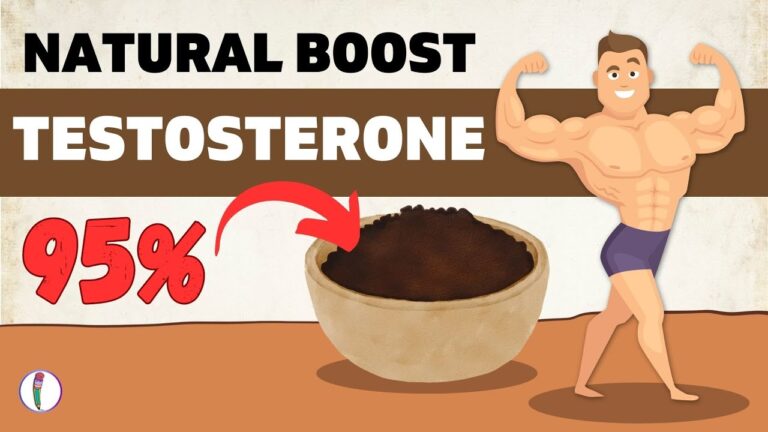The Best Chocolate To Cure Erectile Dysfunction Problems

Understanding Erectile Dysfunction: Causes and Symptoms

Erectile dysfunction (ED) is a common condition that affects a significant number of men. It refers to the inability to achieve or maintain an erection firm enough for satisfactory sexual intercourse. While occasional issues with erectile function are normal, persistent difficulties may indicate an underlying health problem.
Determining the exact cause of ED can be complex as it can be influenced by various factors. One of the primary contributors to this condition is poor blood flow to the penis. This can be a result of conditions such as atherosclerosis, which is the buildup of plaque in the arteries, or diabetes, which can damage blood vessels and nerves over time. Hormonal imbalances, specifically low testosterone levels, can also play a role in erectile dysfunction. Additionally, psychological factors, such as stress, anxiety, and depression, can significantly impact sexual performance. It is worth noting that certain lifestyle habits, including smoking, excessive alcohol consumption, and lack of exercise, can contribute to the development of ED.
Identifying the underlying causes of erectile dysfunction is crucial as it can help guide appropriate treatment options. If you or a loved one is experiencing persistent issues with erectile function, it is recommended to consult with a healthcare professional. They can conduct a comprehensive evaluation, including a medical history review, physical examination, and possibly laboratory tests, to help determine the root cause of the problem. Understanding the causes of ED is the first step towards effective treatment and improving overall sexual health.
The Link Between Diet and Erectile Dysfunction
A healthy diet plays a crucial role in maintaining overall well-being, and it can also impact erectile function in men. Numerous studies have suggested a significant link between diet and erectile dysfunction (ED), highlighting the importance of making dietary changes to support sexual health. Research has shown that a diet high in processed foods, saturated fats, and refined sugars may increase the risk of developing ED. On the other hand, a diet rich in fruits, vegetables, whole grains, lean proteins, and healthy fats has been associated with a reduced risk of ED.
One study published in The American Journal of Clinical Nutrition found that men who followed a Mediterranean-style diet, which is characterized by high consumption of fruits, vegetables, whole grains, and fish, had a lower likelihood of developing ED compared to those who followed a Western-type diet. The Mediterranean diet is known for its abundance of antioxidants, vitamins, and minerals, which help protect against oxidative stress and inflammation, both of which can contribute to ED. Additionally, this diet is high in monounsaturated fats, such as those found in olive oil and nuts, which have been shown to promote healthy blood flow and improve endothelial function, a key factor in erectile health (cite source).
The link between diet and erectile dysfunction (ED) is significant, as the foods we consume can impact various factors related to sexual health and cardiovascular function. Here’s a summary of the relationship between diet and ED:
| Dietary Factor | Impact on Erectile Dysfunction | Source of Information |
|---|---|---|
| Healthy Eating Patterns | A diet rich in fruits, vegetables, whole grains, and lean proteins is associated with a reduced risk of ED. | American Journal of Clinical Nutrition. 2011 Jan;93(1):62-8 |
| Mediterranean Diet | Following a Mediterranean-style diet, which includes olive oil, fish, nuts, and fruits, has been linked to a lower incidence of ED. | The American Journal of Clinical Nutrition. 2015 Dec;102(6):1338-45 |
| Omega-3 Fatty Acids | Foods rich in omega-3 fatty acids, such as fatty fish (salmon, mackerel), may contribute to improved vascular function and lower risk of ED. | The American Journal of Clinical Nutrition. 2008 Aug;88(2):447-54 |
| Antioxidant-Rich Foods | Antioxidants found in fruits and vegetables may help protect blood vessels and support overall vascular health, reducing ED risk. | Journal of Sexual Medicine. 2011 Mar;8(3):776-90 |
| Limiting Saturated Fats | Diets high in saturated fats and cholesterol may contribute to arterial plaque buildup, potentially leading to ED. | Current Opinion in Urology. 2016 Jan;26(1):23-9 |
| Moderate Alcohol Consumption | Moderate alcohol intake may have cardiovascular benefits, but excessive alcohol can contribute to ED. Moderation is key. | The Journal of Sexual Medicine. 2009 Jan;6(1):121-7 |
| Plant-Based Diets | Plant-based diets, emphasizing whole plant foods, have been associated with a lower risk of ED and improved overall health. | International Journal of Impotence Research. 2017 Nov;29(6):261-267 |
| Low-Glycemic Diets | Low-glycemic diets that stabilize blood sugar levels may positively impact ED, especially in individuals with diabetes. | The Journal of Sexual Medicine. 2011 Jul;8(7):1867-78 |
How Chocolate Can Impact Erectile Function

Chocolate has long been enjoyed as a sweet treat, but did you know that it may also have impacts on erectile function? Several studies have explored the potential benefits of chocolate for sexual health, specifically its effect on erectile dysfunction. One study published in the Journal of Sexual Medicine found that men who consumed moderate amounts of dark chocolate had significantly improved erectile function compared to those who did not consume chocolate. The researchers suggest that this improvement may be attributed to the presence of flavanols in dark chocolate, which can enhance blood flow and promote healthy vascular function.
In addition to its potential effects on blood flow, chocolate may also impact erectile function through its role as an antioxidant. Antioxidants help protect the body against oxidative stress, which can contribute to the development of erectile dysfunction. Dark chocolate, in particular, is rich in antioxidants called polyphenols, which have been shown to have a positive impact on cardiovascular health. By reducing oxidative stress and improving blood vessel function, these antioxidants may contribute to improved erectile function. However, it is important to note that more research is needed to fully understand the specific mechanisms through which chocolate affects erectile function.
The Role of Antioxidants in Improving Erectile Health
Antioxidants play a crucial role in improving erectile health by protecting the body against oxidative stress. Oxidative stress occurs when there is an imbalance between the production of free radicals and the body’s ability to neutralize their harmful effects. These free radicals can damage cells and tissues, including the smooth muscle cells that line the blood vessels in the penis. This damage can lead to a decrease in blood flow, which is essential for achieving and maintaining an erection.
Research has shown that antioxidants can help counteract oxidative stress and improve erectile function. One study published in the Journal of Sexual Medicine found that supplementation with antioxidants significantly increased erectile function in men with erectile dysfunction. The antioxidants helped reduce oxidative stress, improve vascular function, and enhance blood flow to the penis.
It is important to note that while antioxidants can be beneficial for erectile health, they should not be viewed as a standalone treatment. Other factors such as lifestyle habits, diet, and overall health also play a crucial role in maintaining erectile function. Consulting with a healthcare professional is recommended to determine the underlying cause of erectile dysfunction and develop a comprehensive treatment plan that may include antioxidants as part of a holistic approach.
Exploring the Different Types of Chocolate and Their Benefits

When it comes to exploring the different types of chocolate and their benefits, it is important to understand that not all chocolates are created equal. There are various types of chocolate available in the market, each with its own unique characteristics and potential health benefits. The most commonly consumed chocolates include milk chocolate, dark chocolate, and white chocolate.
Milk chocolate is perhaps the most popular type of chocolate, known for its creamy texture and sweet flavor. However, it is important to note that milk chocolate typically contains a higher amount of sugar and milk solids, which may not be ideal for those watching their sugar intake or individuals with lactose intolerance. On the other hand, dark chocolate is known for its deeper, richer taste and is often recommended for its potential health benefits. Dark chocolate generally contains a higher percentage of cocoa solids, which are rich in antioxidants known as flavanols. These antioxidants have been associated with various health benefits, including improved heart health and reduced inflammation. Lastly, white chocolate is technically not considered a true chocolate as it does not contain cocoa solids. It consists primarily of cocoa butter, sugar, and milk solids, resulting in a sweet and creamy flavor. However, due to its minimal cocoa content, white chocolate does not offer the same potential health benefits as its darker counterparts.
Dark Chocolate: A Potential Solution for Erectile Dysfunction
Dark chocolate has long been touted for its potential health benefits, and recent research suggests that it may also have a potential role in the treatment of erectile dysfunction (ED). Erectile dysfunction is a condition that affects a significant number of men worldwide, leading to difficulties in achieving or maintaining an erection sufficient for sexual activity. While there are various causes for this condition, including underlying medical conditions and psychological factors, the role of diet and nutrition cannot be overlooked.
Studies have shown that dark chocolate, with its high cocoa content, may have a positive impact on erectile function. One key reason for this is the presence of flavanols in dark chocolate, which have been found to promote the production of nitric oxide in the body. Nitric oxide plays a crucial role in relaxing the blood vessels, allowing for increased blood flow to the erectile tissue. This enhanced blood flow can ultimately improve erectile function. Moreover, dark chocolate is also rich in antioxidants, which can help protect the blood vessels and reduce the risk of damage that may contribute to ED. While further research is needed to fully understand the exact mechanisms, incorporating dark chocolate into a balanced diet may potentially be beneficial for those experiencing erectile dysfunction.
Cocoa Content: Why It Matters in Choosing the Right Chocolate
When it comes to choosing the right chocolate, the cocoa content plays a significant role in determining its quality and potential health benefits. Cocoa content refers to the percentage of pure cocoa solids present in the chocolate, excluding any added sugar, milk, or fats. In general, the higher the cocoa content, the better it is for your health, especially when it comes to managing erectile dysfunction.
Cocoa is rich in flavonoids, a type of natural compound that possesses antioxidant properties. These flavonoids have been shown to improve blood flow, reduce inflammation, and enhance nitric oxide production, all of which are essential for maintaining healthy erectile function. Studies have reported that a higher cocoa content in chocolate corresponds to a higher concentration of these beneficial flavonoids. Therefore, opting for dark chocolate with a higher cocoa content, generally above 70%, is preferable when it comes to improving erectile health.
The Science Behind Chocolate’s Effect on Blood Flow
Chocolate has long been enjoyed for its rich and indulgent taste, but its effects on the body go beyond just a pleasurable sensation. Research has shown that chocolate, particularly dark chocolate, may have a positive impact on blood flow, which in turn can benefit erectile function. The key lies in the bioactive compounds found in chocolate, namely flavanols.
Flavanols are a type of antioxidant that are abundant in cocoa beans, the main ingredient in chocolate. These compounds have been found to stimulate the production of nitric oxide in the body. Nitric oxide plays a crucial role in blood vessel dilation, allowing for improved blood flow throughout the body, including the arteries that supply the penis. By enhancing blood flow to the penile area, chocolate may help to promote healthy erectile function.
In a study published in the Journal of the American Heart Association, researchers found that consumption of dark chocolate high in flavanols was associated with improved endothelial function, a measure of blood vessel health. Another study published in the journal Circulation supports these findings, reporting that cocoa intake led to significantly increased blood flow to the genitalia in healthy men. These studies provide evidence for the potential benefits of chocolate in promoting blood flow and supporting erectile function. However, it is important to note that more research is needed to fully understand the underlying mechanisms and determine the optimal amounts of chocolate consumption for maximizing these benefits.
Understanding the Role of Nitric Oxide in Erectile Function
Nitric oxide (NO) is a critical molecule in maintaining normal erectile function. It acts as a signaling molecule within the body, responsible for relaxing the smooth muscles of the blood vessels that supply the penis with blood. When NO is released, it triggers a cascade of events that ultimately leads to increased blood flow and subsequent erection.
The role of NO in erectile function is closely tied to the process of penile erection. When a man becomes sexually aroused, the brain sends signals to the nerves in the penis, prompting the release of NO. This NO then binds to the enzyme guanylate cyclase, resulting in the production of cyclic guanosine monophosphate (cGMP). Elevated levels of cGMP cause the smooth muscles in the penile arteries to relax, allowing an increased flow of blood into the erectile tissues, leading to an erection.
Studies have shown that deficiencies in NO production or impaired NO signaling can contribute to erectile dysfunction (ED). Various factors such as aging, diabetes, hypertension, and oxidative stress can disrupt the production or availability of NO, leading to a reduced ability to attain or maintain an erection. Understanding the role of NO in erectile function is crucial in exploring strategies to enhance NO production or improve its signaling, which can potentially be beneficial in the management of ED. Further research is needed to fully elucidate the complex mechanisms involved in NO-mediated erectile function and to explore the potential of NO-based therapies in the treatment of ED.
The Potential Benefits of Flavanols in Chocolate for Erectile Health
Flavanols, a type of natural compound found in cocoa beans, have been gaining attention for their potential benefits in improving erectile health. These flavanols are known to have antioxidant properties and can help to enhance blood flow by promoting the production of nitric oxide in the body. Nitric oxide plays a crucial role in vasodilation, relaxing the blood vessels and allowing for better circulation. As a result, the increased blood flow to the penile arteries can help to achieve and maintain erections.
Several studies have examined the effects of flavanols on erectile function. A study published in the journal Circulation found that men who consumed a high-flavanol cocoa drink showed improved blood flow to the penis compared to those who consumed a low-flavanol version. This suggests that flavanols in chocolate can potentially enhance erectile function. Another study published in the Journal of Sexual Medicine demonstrated that daily consumption of cocoa flavanols over a span of 30 days led to improved erectile function in men with mild to moderate erectile dysfunction.
It is important to note that while these studies show promising results, more research is needed to fully understand the mechanisms and long-term effects of flavanols on erectile health. Additionally, it is crucial to consider the overall diet and lifestyle factors that contribute to erectile dysfunction. Flavanols should be integrated as part of a holistic approach to promoting sexual health, which may include other lifestyle modifications, such as regular exercise, stress reduction, and a balanced diet. Consulting with a healthcare professional is recommended to tailor a comprehensive treatment plan that suits individual needs.
Balancing Chocolate Consumption with a Healthy Lifestyle
Chocolate, with its rich and indulgent flavor, has long been a favorite treat for many. However, when it comes to maintaining a healthy lifestyle, it is important to find a balance between indulging in chocolate and making nutritious choices. While chocolate can have potential benefits for erectile health, it’s crucial to approach consumption mindfully and consider its place within an overall healthy diet.
One way to achieve a healthy balance is by opting for dark chocolate, which tends to have a higher cocoa content than other varieties. Cocoa contains beneficial compounds called flavanols, which have been linked to improved blood flow and cardiovascular health. However, it is important to note that not all dark chocolate is created equal, and the cocoa content can vary widely among different brands and products. Therefore, it is essential to read labels and choose options with a higher percentage of cocoa to maximize potential benefits.
Other Natural Remedies to Complement Chocolate’s Effects
When it comes to addressing erectile dysfunction, it is important to explore natural remedies that can complement the potential effects of chocolate. While chocolate has shown promising results in improving erectile function, there are several other natural remedies that can be incorporated into one’s lifestyle for overall erectile health.
One such natural remedy is the inclusion of certain foods in the diet that have been found to support erectile function. Research has shown that foods rich in omega-3 fatty acids, such as fatty fish like salmon and tuna, can help improve blood flow and promote healthy blood vessels. Additionally, incorporating foods high in antioxidants, such as berries, citrus fruits, and leafy greens, can help reduce oxidative stress and inflammation, which play a role in erectile dysfunction.
Furthermore, herbal supplements from the field of Ayurveda have been traditionally used to address various sexual health concerns. Herbs like ashwagandha, ginkgo biloba, and ginseng have been studied for their potential benefits in improving erectile function. However, it is important to note that the use of herbal supplements should be done under the guidance of a healthcare professional, as they may interact with certain medications or have potential side effects.
To further enhance the effects of chocolate and natural remedies, incorporating regular exercise into one’s routine can be beneficial. Exercise has been shown to improve blood flow, reduce stress, and promote overall cardiovascular health – all of which are important factors in maintaining erectile function. Engaging in activities such as brisk walking, swimming, or cycling for at least 30 minutes a day can have positive effects on erectile health.
In conclusion, while chocolate can have potential benefits for erectile function, it is important to consider other natural remedies that can complement its effects. Incorporating a diet rich in omega-3 fatty acids and antioxidants, exploring herbal supplements from Ayurveda, and adopting a regular exercise routine can all contribute to improved erectile health. However, it is crucial to consult with a healthcare professional before making any significant changes to ensure personalized and safe recommendations are provided.
The Importance of Consulting with a Healthcare Professional
Consulting with a healthcare professional is of utmost importance when it comes to addressing concerns related to erectile dysfunction. While it is natural for individuals to feel embarrassed or hesitant to discuss such personal matters, seeking medical advice is crucial for proper diagnosis and effective treatment.
Healthcare professionals, including urologists and primary care physicians, are trained to handle sensitive topics like erectile dysfunction with discretion and professionalism. They have the expertise to assess the underlying causes of this condition and can provide tailored treatment options based on individual needs. Consulting with a healthcare professional allows for a comprehensive evaluation of potential physical and psychological factors that may be contributing to erectile dysfunction, ensuring a holistic approach to addressing the issue.
It is important to remember that erectile dysfunction can be a manifestation of an underlying health condition, such as cardiovascular disease or diabetes. By consulting with a healthcare professional, individuals can ensure that any potential underlying conditions are identified and managed appropriately. Additionally, healthcare professionals can provide guidance on lifestyle modifications, including diet and exercise, that can support overall erectile health. Thus, seeking the expertise of a healthcare professional is an essential step towards effectively addressing erectile dysfunction and maintaining a healthy and fulfilling sex life.
Lifestyle Changes for Maintaining Erectile Health
Maintaining erectile health is a concern for many men, and making certain lifestyle changes can play a crucial role in supporting optimal functioning of the male reproductive system. Engaging in regular physical exercise is one such change that can have a positive impact. Exercise helps to improve blood circulation throughout the body, including the genital area, thereby enhancing erectile function. Additionally, it can help to maintain a healthy body weight, which is important as obesity has been linked to the development of erectile dysfunction. Starting with moderate-intensity activities such as brisk walking, swimming, or cycling can be beneficial, eventually progressing to more vigorous exercises as tolerated. It is important to consult with a healthcare professional before starting any exercise regimen to ensure it is safe for your specific needs.
In addition to exercise, adopting a balanced and nutritious diet can also contribute to maintaining erectile health. Eating a diet rich in fruits, vegetables, whole grains, lean proteins, and healthy fats can provide the necessary nutrients to support overall sexual function. Some specific foods have even been found to have potential benefits for erectile health. For example, studies have suggested that consuming certain foods high in antioxidants, such as berries and dark leafy greens, may help to improve blood flow, reduce oxidative stress, and support erectile function. Additionally, incorporating foods that contain L-arginine, an amino acid that helps produce nitric oxide, may also be beneficial. Sources of L-arginine include poultry, fish, nuts, and seeds. It is important to note that individual dietary needs may vary, so consulting with a healthcare professional or registered dietitian is recommended to create a personalized and balanced eating plan.
What are the causes of erectile dysfunction?
Erectile dysfunction can be caused by various factors including obesity, heart disease, high blood pressure, diabetes, certain medications, psychological factors such as stress or anxiety, and lifestyle choices such as smoking or excessive alcohol consumption.
How can diet affect erectile dysfunction?
Diet plays a crucial role in erectile health. Consuming a diet high in processed foods, saturated fats, and sugars can contribute to poor blood flow and lead to erectile dysfunction. On the other hand, adopting a balanced diet rich in fruits, vegetables, whole grains, and lean proteins can promote better erectile function.
Can chocolate impact erectile function?
Yes, chocolate can impact erectile function. Dark chocolate, in particular, contains compounds called flavanols that have been shown to improve blood flow and enhance erectile function. However, moderation is key as excessive consumption can lead to weight gain, which is a risk factor for erectile dysfunction.
What is the role of antioxidants in improving erectile health?
Antioxidants help combat oxidative stress in the body, which can contribute to erectile dysfunction. By reducing oxidative damage and improving blood flow, antioxidants play a crucial role in maintaining erectile health.
Which type of chocolate is considered a potential solution for erectile dysfunction?
Dark chocolate is considered a potential solution for erectile dysfunction due to its high cocoa content and beneficial flavanol compounds. Milk chocolate and white chocolate, on the other hand, contain less cocoa and therefore have fewer potential benefits for erectile health.
How does cocoa content matter in choosing the right chocolate?
Cocoa content matters because higher cocoa content means more flavanols, which are beneficial for erectile health. When selecting chocolate, opt for dark chocolate with a cocoa content of 70% or higher to maximize the potential benefits for erectile function.
What is the science behind chocolate’s effect on blood flow?
The flavanols present in chocolate have been shown to stimulate the production of nitric oxide, which is a compound that relaxes blood vessels and improves blood flow. By promoting better blood circulation, chocolate can enhance erectile function.
What is the role of nitric oxide in erectile function?
Nitric oxide is a key factor in achieving and maintaining an erection. It helps relax the smooth muscles in the penis, allowing for increased blood flow and the engorgement of erectile tissues, ultimately leading to an erection.
How do flavanols in chocolate benefit erectile health?
Flavanols in chocolate improve erectile health by promoting better blood flow, enhancing nitric oxide production, reducing oxidative stress, and improving overall cardiovascular health.
How can chocolate consumption be balanced with a healthy lifestyle?
Chocolate consumption should be moderated alongside a healthy lifestyle. Opt for dark chocolate in moderation as part of a balanced diet that includes exercise, maintaining a healthy weight, not smoking, and limiting alcohol consumption to maintain overall erectile health.
Are there any other natural remedies that can complement the effects of chocolate on erectile health?
Yes, there are other natural remedies that can complement the effects of chocolate on erectile health. Some of these include maintaining a healthy diet, regular exercise, stress management techniques, getting enough sleep, and considering supplements like L-arginine, ginseng, or pomegranate extract. However, it is important to consult with a healthcare professional before starting any new supplements.
Why is it important to consult with a healthcare professional for erectile health concerns?
It is important to consult with a healthcare professional for erectile health concerns because they can provide personalized advice, diagnose any underlying conditions, and recommend appropriate treatments or lifestyle changes based on your specific needs. They can also help determine if chocolate or other natural remedies are suitable for you.






